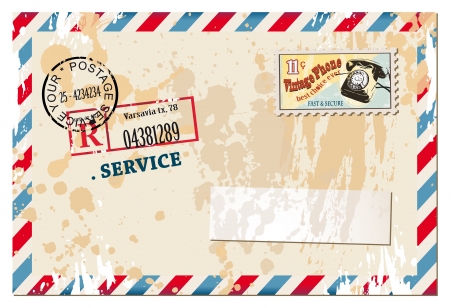【SAT高分系列】SAT阅读满分技能(3)
- 2017年05月25日11:55 来源:互联网
- 参与(0) 阅读(8612)
上一次我们讨论了以下问题:为什么拿到阅读高分如此重要,为什么你一定能提高阅读成绩,以及你要达成目标需要取得什么样的成绩。现在我们来谈谈这篇文章最精彩的部分:在你学习的过程中应该用到的一些实用技巧和阅读时的一些小方法,这些技巧和方法可以最大化地提高你的成绩。
Strategy 5: Understand Every Single Mistake You Make
技巧5:搞清你犯的每一个错
On the path to perfection, you need to make sure every single one of your weak points is covered. Even just one mistake will knock you down from an 800, as we saw in the score charts above.
The first step is simply to do a ton of practice. If you're studying from free materials or from books, you have access to a lot of practice questions in bulk. As part of our Prep Scholar program, we have over 1,500 SAT questions customized to each skill.
The second step - and the more important part - is to be ruthless about understanding your mistakes.
Every mistake you make on a test happens for a reason. If you don't understand exactly why you missed that question, you will make that mistake over and over again.
I've seen students who did 20 practice tests. They've solved over 3,000 questions, but they're still nowhere near a perfect SAT Reading score.
Why? They never understood their mistakes. They just hit their heads against the wall over and over again.
Think of yourself as an exterminator, and your mistakes are cockroaches. You need to eliminate every single one - and find the source of each one - or else the restaurant you work for will be shut down.
Here's what you need to do:
on every practice test or question set that you take, mark every question that you're even 20% unsure about.
when you grade your test or quiz, review every single question that you marked, and every incorrect question. This way even if you guessed a question correctly, you'll make sure to review it.
in a notebook, write down 1) the gist of the question, 2) why you missed it, and 3) what you'll do to avoid that mistake in the future. Have separate sections by question type (vocab questions, big picture questions, inference questions, etc.)It's not enough to just think about it and move on. It's not enough to just read the answer explanation. You have to think hard about why you specifically failed on this question.
By taking this structured approach to your mistakes, you'll now have a running log of every question you missed, and your reflection on why.
No excuses when it comes to your mistakes.
Always Go Deeper- WHY Did You Miss a Reading Question?
一定要多思考,为什么你会答错题?
Now, what are some common reasons that you missed a question? Don't just say, "I didn't get this question right." That's a cop out.
Always take it one step further - what specifically did you miss, and what do you have to improve in the future?
Here are some examples of common reasons you miss a Reading question, and how you take the analysis one step further:
Elimination: I couldn't eliminate enough incorrect answer choices, or I eliminated the correct answer.
One step further: Why couldn't I eliminate the answer choice during the test? How can I eliminate answer choices like this in the future?
Careless Error: I misread what the question was asking for or answered for the wrong thing.
One step further: Why did I misread the question? What should I do in the future to avoid this?
Vocab词汇: I didn't know what the key word meant.
One step further: What word was this? What is the definition? Are there other words in this question I didn't know?
Get the idea? You're really digging into understanding why you're missing questions.
Yes, this is hard, and it's draining, and it takes work. That's why most students who study in effectively don't improve.
But you're different. Just by reading this guide, you're already proving that you care more than other students. And if you apply these principles and analyze your mistakes, you'll improve more than other students too.
Reviewing mistakes is so important that in Prep Scholar, for every one of our 1,500+ practice questions, we explain in detail how to get the correct answer, and why incorrect answers are wrong. We also point out bait answers so that you can you can learn the tricks that the SAT plays on test takers like you.
Bonus Tip: Re-solve the Question Before Reading the Answer Explanation
得分小提示:在看答案解析前再做一遍题目
When you're reviewing practice questions, the first thing you probably do is read the answer explanation and at most reflect on it a little.
This is a little too easy. I consider this passive learning - you're not actively engaging with them is take you made.
Instead, try something different - find the correct answer choice (A-D), but don't look at the explanation. Instead, try to re-solve the question once over again and try to get to the correct answer.
This will often be hard. You couldn't solve it the first time, so why could you solve it the second time around?
But this time, with less time pressure, you might spot a new reason to eliminate the wrong answer choice, or something else will pop up. Something will just "click" for you.
When this happens, what you learned will stick with you for 20 times longer than if you just read an answer explanation. I know this from personal experience. Because you've struggled with it and reached a breakthrough, you retain that information far better than if you just passively absorbed the information.
This is perfect for SAT Reading because you'll often miss a question because of an incorrect interpretation of the text. By forcing yourself to get the right answer, you'll practice getting the CORRECT interpretation of the text. Even better, you'll be scrounging the passage for clues as to why the correct answer is correct, which is exactly what you need in your passage strategy to begin with.
It's too easy to just read an answer explanation and have it go in one ear and out the other. You won't actually learn from your mistake, and you'll make that mistake over and over again.
Treat each wrong question like a puzzle. Struggle with each wrong answer for up to 10 minutes. Only then if you don't get it should you read the answer explanation.
Strategy 6: Find Your Reading Skill Weaknesses and Drill Them
技巧6:找出你的阅读技巧方面的不足,然后多加练习
Reading passage questions might look similar, but they actually test very different skills. At Prep Scholar we believe the major passage skills to be:
Big Picture/Main Point
Little Picture/Detail
Inference
Words and Phrases in Context
Citing Textual Evidence
Perspective
Analyzing Word Choice
Analyzing Text Structure
Analyzing Multiple Texts
Analyzing Quantitative InfoWhew - that's a lot of skills. That's a much more detailed breakdown than what appears at first glance, and what most books and courses offer.
Each of these question types uses different skills in how you read and analyze a passage.They each require a different method of prep and focused practice.
The SAT requires a lot of skills. Make sure you know which ones are your weaknesses.
If you're like most students, you're better at some areas in Reading than others. You might be better at getting the Big Picture of a passage, compared to the Inference. Or you might be really strong in vocabulary, but weak in understanding the function of sentences in a passage.
If you're like most students, you also don't have an unlimited amount of time to study. This means for every hour you study for the SAT, it needs to be the most effective hour possible.
In concrete terms, you need to find your greatest areas of improvement and work on those.
Too many students study the 'dumb' way. They just buy a book and read it cover to cover. When they don't improve, they're SHOCKED.
I'm not.
Studying effectively for the SAT isn't like painting a house. You're not trying to cover all your bases with a very thin layer of understanding.
What these students did wrong was they wasted time on subjects they already knew, and they didn't spend enough time on their weaknesses.
Instead, studying effectively for the SAT is like plugging up the holes of a leaky boat. You need to find the biggest hole, and fill it. Then you find the next biggest hole, and you fix that. Soon you'll find that your boat isn't sinking at all.
How does this relate to SAT Reading? You need to find the sub-skills that you're weakest in, and then drill those until you're no longer weak in them. Fixing up the biggest holes.
Within reading, you need to figure out whether you have patterns to your mistakes. Is it that you don't get Inference questions? Or maybe you're really weak at interpreting details? Or from strategy 1: is it that you're running out of time in reading passages?
For every question that you miss, you need to identify the type of question it is. When you notice patterns to the questions you miss, you then need to find extra practice for this subskill.
你需要归纳你答错的每道题,如果你发现了你错的题目有一定的模式,你就需要去做针对性的练习。
Say you miss a lot of inference questions (this is typically the hardest type of question for students to get). You need to find a way to get focused practice questions for this skill so you can drill your mistakes.
(更多内容请翻页查看)

























